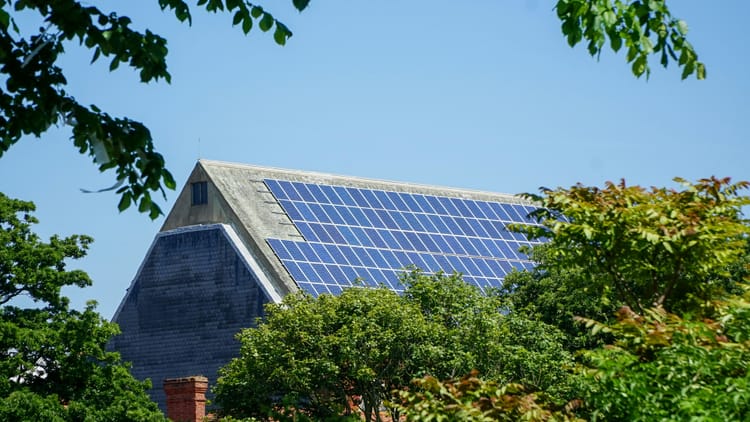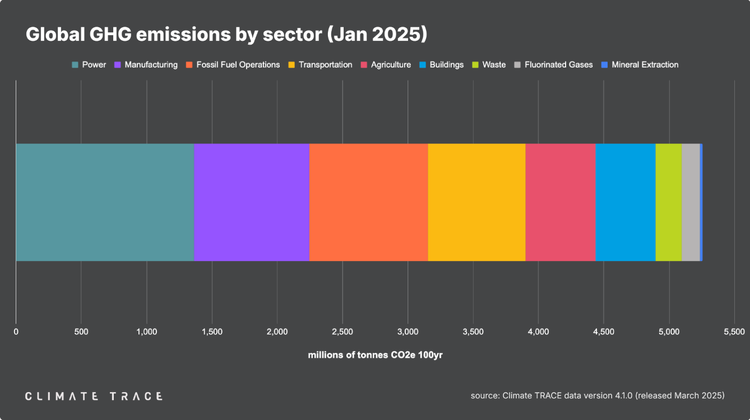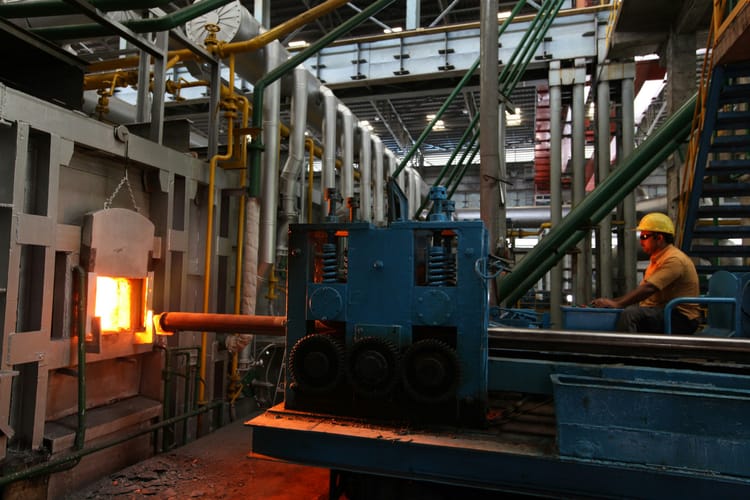The three F’s of COP28 - Part 1: Fossil fuels

As global sustainability and policy stakeholders head to Dubai next week for COP28, Chief Sustainability Officers should pay particular attention to three main themes: fossil fuels phase-down, climate finance and food systems.
With the world now on track to warm by nearly 3ºC by the end of the century, the heat is (quite literally) on to ramp up decarbonisation commitments, and more importantly, action – with fossil fuels at the centre of the debate.
Fossil fuel phase-out would support all decarbonisation goals
Public financing for fossil fuels reached a record US$1.4 trillion last year, and many companies in the sector have shifted their attention away from decarbonisation to refocus on increased production.
This trend is likely hindering the climate efforts of many other industries: in a conversation with CSO Futures last month, NTT Chief Sustainability Officer Vicky Bullivant talked about the challenge of reducing emissions from data centres in countries with fossil-based energy grids, such as South Africa for example.
Experts are warning that we now need a rapid reduction in both production and consumption of coal, oil and gas, and the European Parliament delegation announced yesterday that it will use the conference to call for an end of all fossil fuel subsidies globally by 2025.
A global agreement on the phase-out of fossil fuels would benefit Chief Sustainability Officers by leading to reductions in companies’ Scope 2 emissions from grid electricity. But it would also support the business case for investment in alternatives – a sorely needed development at a time when one-third of companies expect to still rely on fossil fuels by 2050.
COP28, oil and gas firms and the push for carbon capture and storage
But reaching an agreement on the phase-down of fossil energies will likely be difficult, and involve tense negotiations on specific targets and wording. Fossil fuel lobbyists have increased their participation in climate negotiations in recent years, and COP28 is taking place in Dubai and presided by Sultan Al-Jaber, the chief executive of the Abu Dhabi National Oil Company (ADNOC).
He has been vocal in his desire to rally the oil and gas industry behind climate goals, but experts say any agreement should go beyond emissions reduction targets and include rapid reductions in output. Indeed, many companies in the sector (including ADNOC) seem to be betting heavily on carbon capture and storage as a way to continue pumping out fossil fuels while reducing their emissions.
(John Ostergren, the Chief Sustainability Officer of Smiths Group, recently told CSO Futures that the engineering conglomerate’s project pipeline for hydrogen and carbon capture projects “has doubled within the last year”.)
As a result, Melanie Robinson, WRI’s Global Climate Programme Director, explains that COP28 will likely see much debate on the phase-down of “abated” vs “unabated” fossil fuels, where unabated means fossil fuels produced without carbon capture. This has been the preferred wording in many recent communications – including this corporate call to “phase out unabated fossil fuels" last month.
‘No credible scenario’ where carbon capture allows the continued use of fossil fuels
But carbon capture without a commitment to reduce fossil fuel output is at best an insufficient solution. First, carbon capture and storage (CCS) capacity remains low: even if it expanded 120 times from current levels, ot would only reach 4.2 gigatonnes per annum – yet the world needs to cut emissions by at least 16 gigatonnes by 2030, according to the latest Emissions Gap Report published this week by the UN.
And even if carbon capture and storage could completely eliminate GHG emissions from fossil fuel production (which recent trials suggest is not a guarantee), burning those “abated” fossil fuels for energy and mobility would still generate emissions.
“Oil companies and producer countries would have us believe that if CCS is widely adopted, the world could continue to burn fossil fuels and achieve our climate goals. And I'm afraid that simply put there's no credible scenario where CCS would allow the continued significant and widespread use of fossil fuels, let alone expand oil and gas production. So we think it's important that the COP28 outcome acknowledges this limited role CCS can play and keeps the focus on the critical need to deeply reduce fossil fuels,” Robinson explains.
Renewable energy and grid investment
Parallel to the urgent need to reduce fossil fuel use is the priority to triple renewable energy capacity by 2030, to 11 terawatts; a move the International Energy Agency describes as the “single most important lever” to reducing energy emissions. This exceeds the latest BloombergNEF forecast on renewables growth, which is based on current economics, trends, project pipelines and policies.
According to the data firm, in order to meet the 11 terawatt goal, any pledge made at COP28 should not focus on direct subsidies, but rather “remove barriers to access for renewable energy developers, enable competitive auctions and encourage corporate power purchase agreements”.
This outcome would be music to the ears of company executives, who secured a record 36.7 gigawatts of renewable power in 2022 and are likely to face stricter requirements for Scope 2 accounting from 2025.
Additionally, there is a growing need for governments to invest in grid infrastructure modernisation to support the transmission and distribution of high levels of renewable energy.
“We have around the world very limited investment happening in grids that are both modernised as well as the transmission and distribution systems to get those grids to be robust and to be able to manage both the variable renewables and also have the resilience and adaptation to climate impact,” says Layke.
She adds that any renewable energy package agreed at COP28 should also ensure equitable access to finance around the world, noting that only 2% of renewables investment went into Africa in 2021. “We know that that simply won't work if we're going to avoid fossil fuels.”
Read also: The three F's of COP28 - Part 2: Finance







Member discussion